Related Research Articles
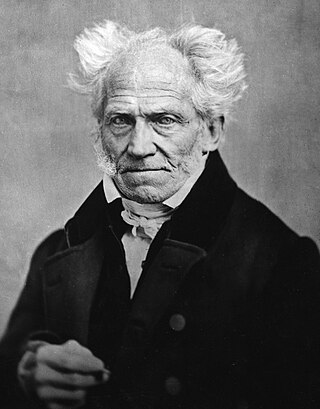
Arthur Schopenhauer was a German philosopher. He is best known for his 1818 work The World as Will and Representation, which characterizes the phenomenal world as the manifestation of a blind and irrational noumenal will. Building on the transcendental idealism of Immanuel Kant (1724–1804), Schopenhauer developed an atheistic metaphysical and ethical system that rejected the contemporaneous ideas of German idealism. He was among the first thinkers in Western philosophy to share and affirm significant tenets of Indian philosophy, such as asceticism, denial of the self, and the notion of the world-as-appearance. His work has been described as an exemplary manifestation of philosophical pessimism. Though his work failed to garner substantial attention during his lifetime, Schopenhauer had a posthumous impact across various disciplines, including philosophy, literature, and science. His writing on aesthetics, morality, and psychology have influenced many thinkers and artists.

Søren Aabye Kierkegaard was a Danish theologian, philosopher, poet, social critic, and religious author who is widely considered to be the first existentialist philosopher. He wrote critical texts on organized religion, Christianity, morality, ethics, psychology, and the philosophy of religion, displaying a fondness for metaphor, irony, and parables. Much of his philosophical work deals with the issues of how one lives as a "single individual", giving priority to concrete human reality over abstract thinking and highlighting the importance of personal choice and commitment. He was against literary critics who defined idealist intellectuals and philosophers of his time, and thought that Swedenborg, Hegel, Fichte, Schelling, Schlegel, and Hans Christian Andersen were all "understood" far too quickly by "scholars."

Prof. Albus Percival Wulfric Brian Dumbledore is a fictional character in J. K. Rowling's Harry Potter series. For most of the series, he is the headmaster of the wizarding school Hogwarts. As part of his backstory, it is revealed that he is the founder and leader of the Order of the Phoenix, an organisation dedicated to fighting Lord Voldemort, the main antagonist of the series.
Ancient Greek philosophy arose in the 6th century BC. Philosophy was used to make sense of the world using reason. It dealt with a wide variety of subjects, including astronomy, epistemology, mathematics, political philosophy, ethics, metaphysics, ontology, logic, biology, rhetoric and aesthetics. Greek philosophy continued throughout the Hellenistic period and later evolved into Roman philosophy.
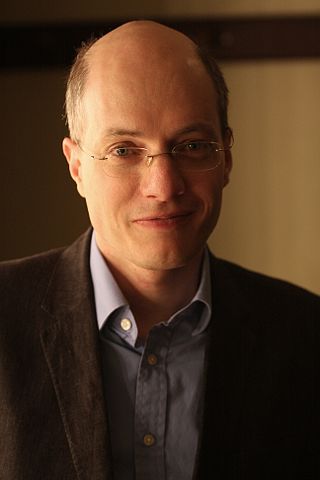
Alain de Botton is a Swiss-born British author and public speaker. His books discuss various contemporary subjects and themes, emphasizing philosophy's relevance to everyday life. He published Essays in Love (1993), which went on to sell two million copies. Other bestsellers include How Proust Can Change Your Life (1997), Status Anxiety (2004), and The Architecture of Happiness (2006).
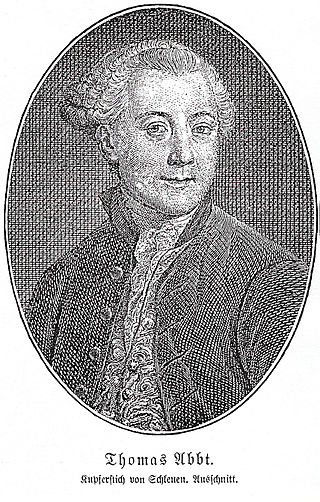
Thomas Abbt was a German mathematician and writer.

Gymnosophists is the name given by the Greeks to certain ancient Indian philosophers who pursued asceticism to the point of regarding food and clothing as detrimental to purity of thought. They were noted to have been vegetarian by several Greek authors. There were also gymnosophists in Upper Egypt who were called Ethiopian Gymnosophists by Apollonius of Tyana.

Temperance in its modern use is defined as moderation or voluntary self-restraint. It is typically described in terms of what a person voluntarily refrains from doing. This includes restraint from revenge by practicing mercy and forgiveness, restraint from arrogance by practicing humility and modesty, restraint from excesses such as extravagant luxury or splurging, restraint from overindulgence in food and drink, and restraint from rage or craving by practicing calmness and equanimity.
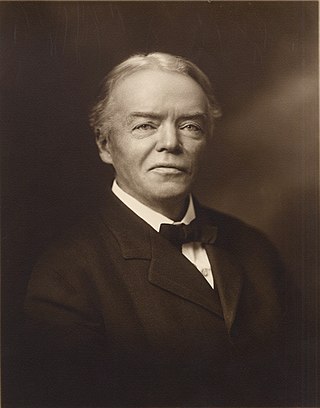
Josiah Royce was an American Pragmatist and objective idealist philosopher and the founder of American idealism. His philosophical ideas included his joining of pragmatism and idealism, his philosophy of loyalty, and his defense of absolutism.

Passion is a one-act musical, with music and lyrics by Stephen Sondheim and a book by James Lapine. The story was adapted from Ettore Scola's 1981 film Passione d'Amore, and its source material, Iginio Ugo Tarchetti's 1869 novel Fosca. Central themes include love, sex, obsession, illness, passion, beauty, power and manipulation. Passion is notable for being one of the few projects that Stephen Sondheim himself conceived, along with Sweeney Todd and Road Show.
Phædo or Phaedo, also known to ancient readers as On The Soul, is one of the best-known dialogues of Plato's middle period, along with the Republic and the Symposium. The philosophical subject of the dialogue is the immortality of the soul. It is set in the last hours prior to the death of Socrates, and is Plato's fourth and last dialogue to detail the philosopher's final days, following Euthyphro, Apology, and Crito.
Situational ethics or situation ethics takes into account only the particular context of an act when evaluating it ethically, rather than judging it only according to absolute moral standards. With the intent to have a fair basis for judgments or action, one looks to personal ideals of what is appropriate to guide them, rather than an unchanging universal code of conduct, such as Biblical law under divine command theory or the Kantian categorical imperative. Proponents of situational approaches to ethics include existentialist philosophers Sartre, de Beauvoir, Merleau-Ponty, Jaspers, and Heidegger.
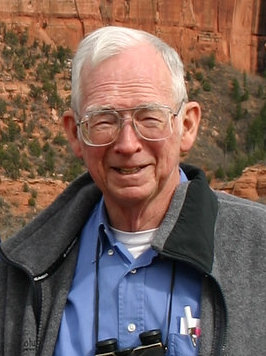
Holmes Rolston III is a philosopher who is University Distinguished Professor of Philosophy at Colorado State University. He is best known for his contributions to environmental ethics and the relationship between science and religion. Among other honors, Rolston won the 2003 Templeton Prize, awarded by Prince Philip in Buckingham Palace. He gave the Gifford Lectures, University of Edinburgh, 1997–1998. He also serves on the Advisory Council of METI.
Aristo of Chios, also spelled Ariston, was a Greek Stoic philosopher and colleague of Zeno of Citium. He outlined a system of Stoic philosophy that was, in many ways, closer to earlier Cynic philosophy. He rejected the logical and physical sides of philosophy endorsed by Zeno and emphasized ethics. Although agreeing with Zeno that Virtue was the supreme good, he rejected the idea that morally indifferent things such as health and wealth could be ranked according to whether they are naturally preferred. An important philosopher in his day, his views were eventually marginalized by Zeno's successors.
Demonax was a Greek Cynic philosopher. Born in Cyprus, he moved to Athens, where his wisdom, and his skill in solving disputes, earned him the admiration of the citizens. He taught Lucian, who wrote a Life of Demonax in praise of his teacher. When he died he received a magnificent public funeral.

The philosophy of Søren Kierkegaard has been a major influence in the development of 20th-century philosophy, especially existentialism and postmodernism. Søren Kierkegaard was a 19th-century Danish philosopher who has been labeled by many as the "Father of Existentialism", although there are some in the field who express doubt in labeling him an existentialist to begin with. His philosophy also influenced the development of existential psychology.
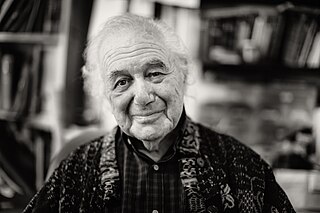
Jacob Needleman was an American philosopher, author, and religious scholar.
Alexander, nicknamed Pēloplátōn, also known as Alexander of Seleucia and Alexander the Platonic, was a Greek rhetorician and Platonist philosopher of the age of the Antonines and the Second Sophistic.

Cynicism is a school of thought in ancient Greek philosophy, originating in the Classical period and extending into the Hellenistic and Roman Imperial periods. According to Cynicism, people are reasoning animals and the purpose of life and the way to gain happiness is to achieve virtue, in agreement with nature, following one's natural sense of reason by living simply and shamelessly free from social constraints. The Cynics rejected all conventional desires for wealth, power, glory, social recognition, conformity, and worldly possessions and even flouted such conventions openly and derisively in public.

Elena Gilbert is a fictional character and protagonist from the novel series The Vampire Diaries. In the television series adaptation, set in the fictional town of Mystic Falls, she is portrayed by Nina Dobrev. In the books, Elena was popular, selfish and a "mean girl". However, the show's producers, Julie Plec and Kevin Williamson, felt that it wasn't the direction they wanted to go with their heroine in The Vampire Diaries television series. Instead, she became a nicer, relatable, and more of "the girl next door" type, until her life gets flipped upside down when she meets the Salvatore Brothers. In April 2015, Nina Dobrev announced that she would be departing the series after the sixth-season finale.
References
- ↑ "John Hardwig". Archived from the original on 2016-02-17.
- ↑ "Is there a duty to die?". BBC Ethics. Retrieved 10 February 2016.
- ↑ Olshansky, S.J.; Ault, A.B. (1986). "The Fourth Stage of the Epidemiological Transition: The Age of Delayed Degenerative Diseases". Milbank Memorial Fund Quarterly: Health and Society. 64 (3): 355–391. JSTOR 3350025.